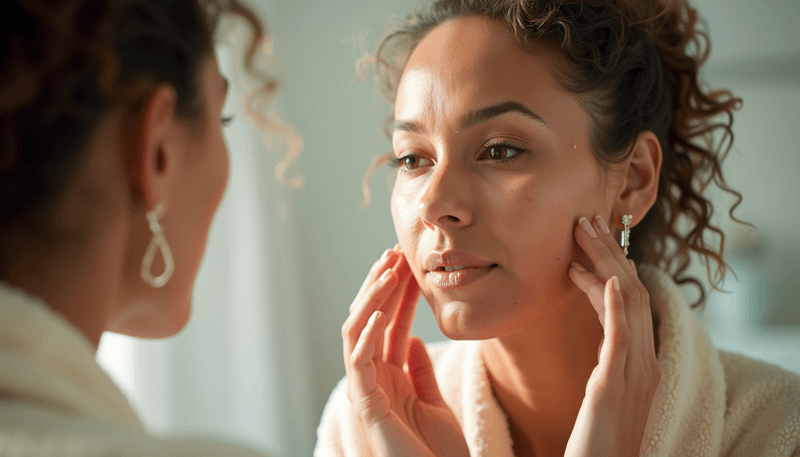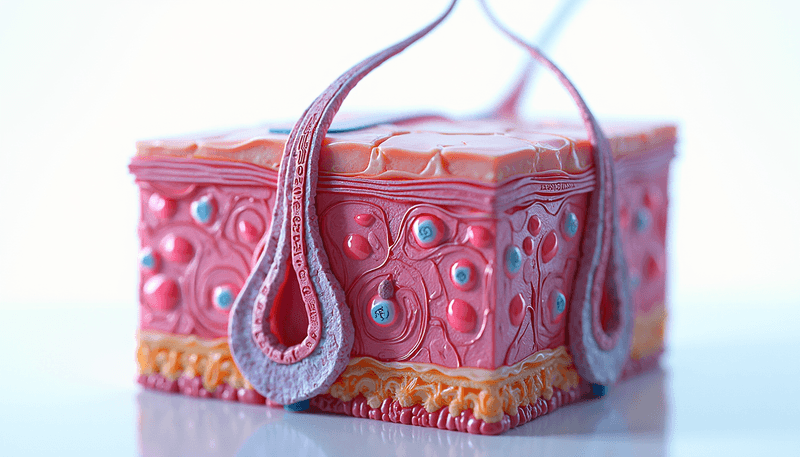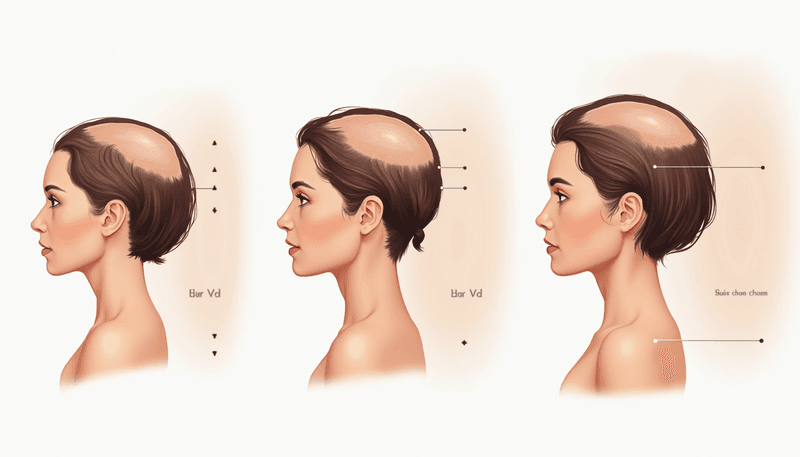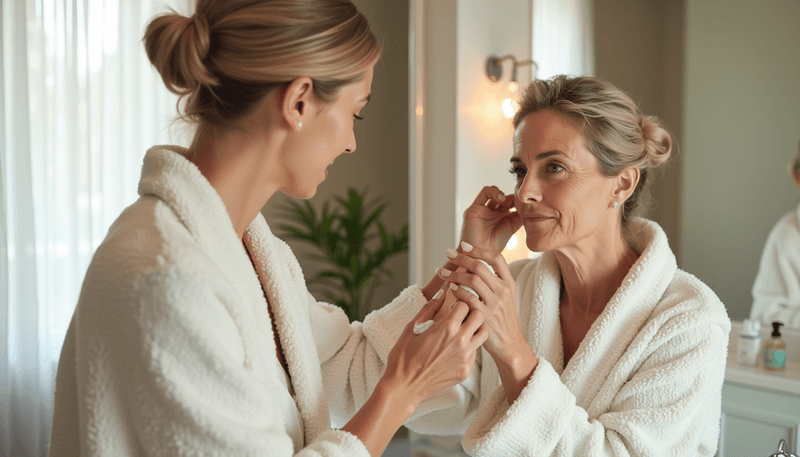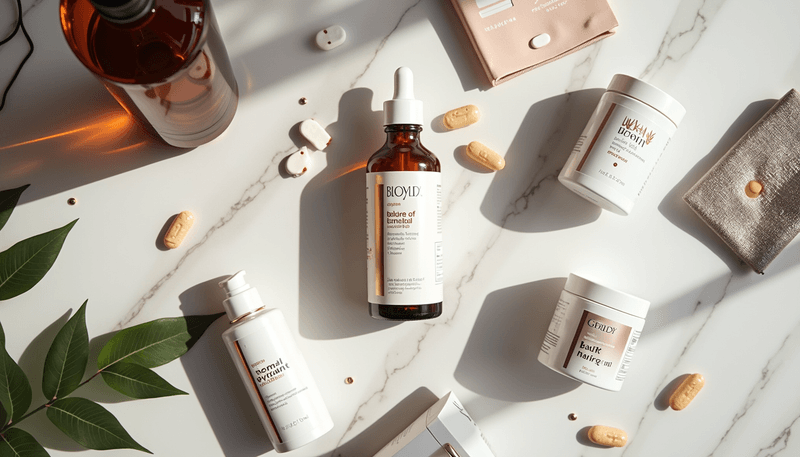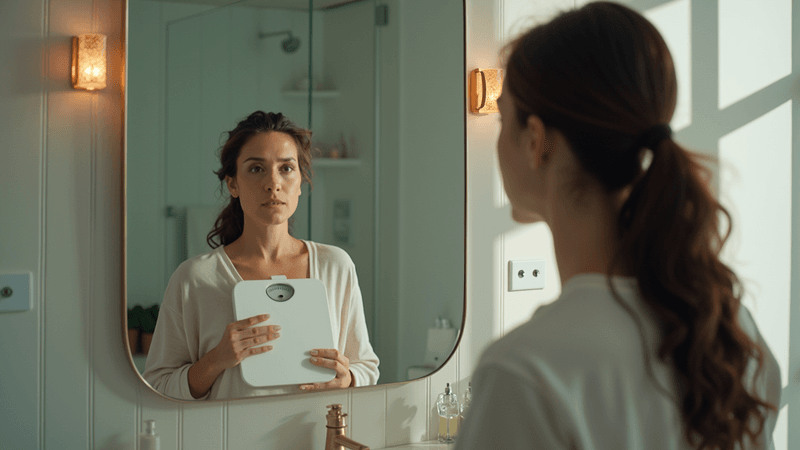Your Skin After Menopause: What Changes?
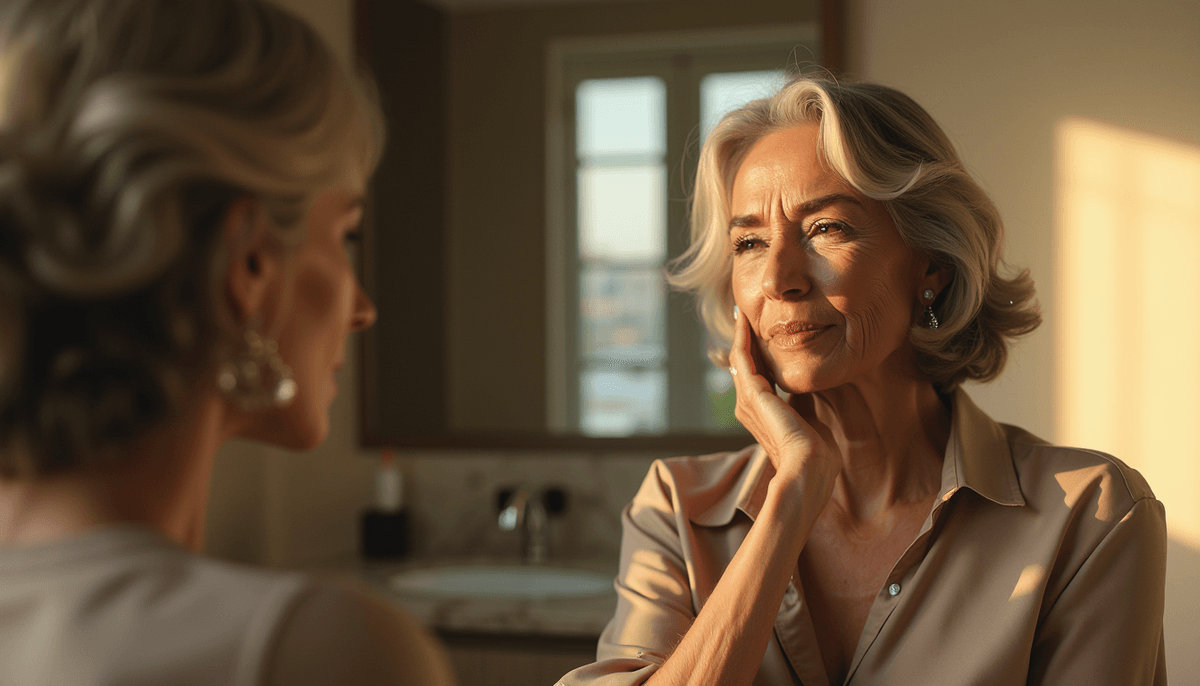
Standing in front of my bathroom mirror one morning, I noticed changes in my skin that seemed to appear overnight – dryness, fine lines, and a different texture I hadn't seen before. As a health writer specializing in women's issues, I knew these changes weren't random. They were signs of a deeper transformation happening in my body during menopause. This experience led me to explore groundbreaking research on how menopause affects our skin and hair, and what we can do about it.
Understanding the Hormonal Symphony
Think of your skin as an orchestra, with estrogen as the conductor. Before menopause, estrogen keeps all the instruments playing in perfect harmony – maintaining moisture, elasticity, and collagen production. When menopause arrives, it's like the conductor steps down, leaving the orchestra to play without its crucial leader. The result? Your skin begins to change in noticeable ways.
"Have you noticed how your skin feels different as you age? It's not just time passing – it's your body's changing hormone levels telling a story."
The science shows that our skin is actually an endocrine organ, meaning it both produces and responds to hormones. During menopause, estrogen levels drop dramatically, leading to:
- Decreased collagen production (30% loss in the first 5 years)
- Reduced skin hydration
- Slower wound healing
- Thinner skin structure
The Hair Story: More Than Just Gray Strands
When I noticed my hair becoming thinner, especially at my crown, I wasn't alone. Many women experience significant changes in their hair during menopause. The research reveals an fascinating chemical tug-of-war happening in our bodies.
"Why does menopause affect our hair so differently than men's? The answer lies in our unique hormonal balance."
Here's what happens:
- Estrogen levels drop while relative androgen levels remain the same
- This new ratio can trigger female pattern hair loss
- Some women experience unexpected facial hair growth
- Hair becomes finer and more brittle
Practical Solutions for Your New Skin Reality
The research offers hope through science-based solutions that can help manage these changes effectively. It's like learning to work with a new instrument rather than fighting against it.
Daily Skin Care Strategies:
- Use products containing hyaluronic acid to boost moisture retention
- Apply broad-spectrum sunscreen daily (UV damage is more impactful now)
- Include products with peptides to support collagen production
- Consider consulting about hormone therapy if symptoms are severe
"What one small change in your skincare routine could you make today to better support your skin's changing needs?"
For the past two years, I've followed these guidelines myself, and the difference is noticeable. My skin feels more resilient, and while I can't stop time, I can certainly help my skin age more gracefully.
Hair Care Solutions That Actually Work
The research highlights several effective approaches to managing menopausal hair changes:
Evidence-based treatments include:
- Topical minoxidil (2% solution or 5% foam)
- Hair-supporting supplements with biotin and zinc
- Gentle hair care practices to prevent breakage
- Professional treatments like platelet-rich plasma therapy
Your Plan of Action
Start by implementing these science-backed steps:
- Document your skin and hair changes for 30 days
- Identify your most bothersome symptoms
- Choose one area to focus on first
- Consult with healthcare providers about personalized solutions
"The best time to start caring for your menopausal skin and hair was yesterday. The second best time is today."
You're not alone in this journey. These changes are a natural part of life, and with the right knowledge and tools, you can maintain healthy, vibrant skin and hair through menopause and beyond.
Take the first step today: Choose one skin or hair care practice from this article and commit to it for the next month. Share your experience with other women in your life – you might be surprised how many are facing similar challenges and would appreciate your insights.

Olivia Rose Chen-Martinez
Olivia Rose Chen-Martinez is a seasoned health and wellness writer with a focus on women’s health issues, including PCOS, perimenopause, and holistic wellness. With a background in Journalism and Public Health from UC Berkeley, Olivia draws on over 15 years of writing experience to deliver empathetic, research-backed insights. Her work blends personal anecdotes and actionable advice, resonating with readers seeking accessible and trustworthy information. Based in Austin, Texas, Olivia is also a certified yoga instructor and a dedicated advocate for balanced, integrative approaches to women’s health.
